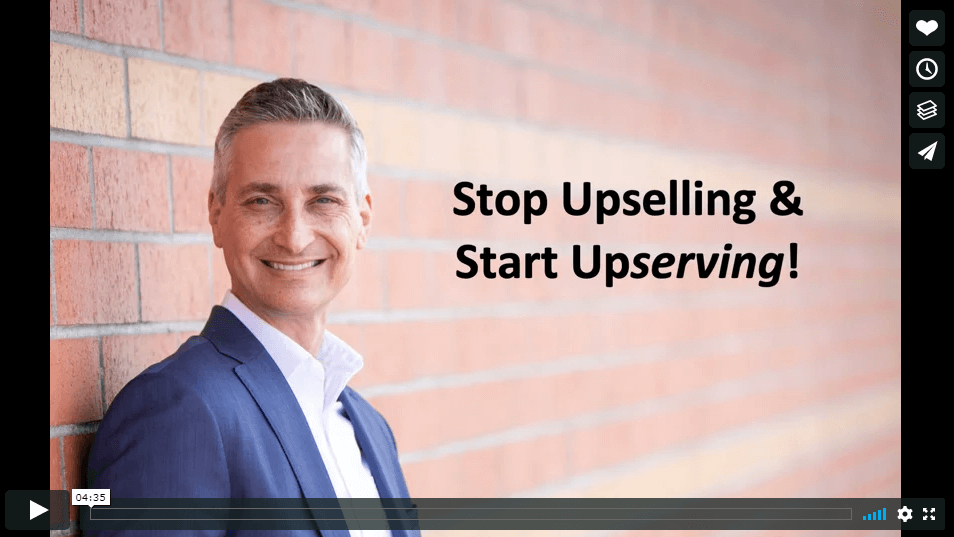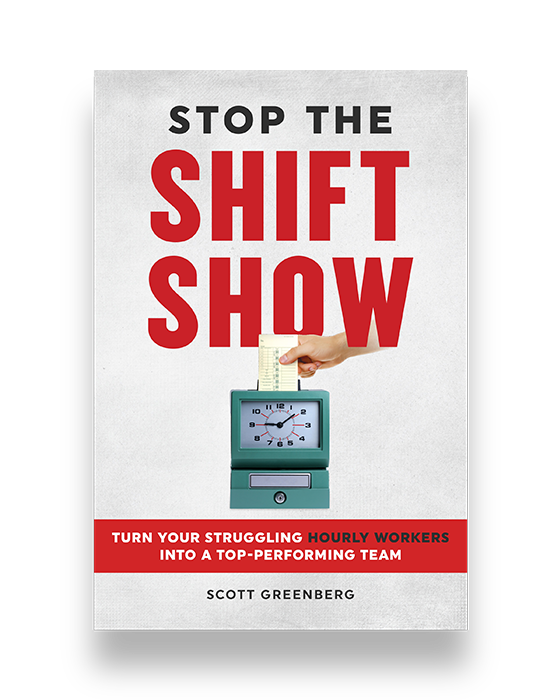Stop Upselling & Start Upserving
How to Grow Your Business With Better Service Instead of Just Bigger Sales
“Would you like fries with that?”
Whether you eat fast food or not, you’ve heard this question a thousand times. You go somewhere to buy something, and they try to sell you something additional.
[gdlr_core_space height=”30px”]
Upselling, also known as “suggestive selling,” works. We did it at Edible Arrangements. Adding balloons, extra fruit or an upgraded ceramic container could significantly increase our ticket average. What business doesn’t want that?
[gdlr_core_space height=”30px”]
The problem is upselling can become predatory. It turns the customer into a mark. It puts the focus on serving ourselves rather than on serving them. That’s shortsighted.
[gdlr_core_space height=”30px”]
The term “upselling” has been around for a while. In his book, To Sell Is Human, Daniel Pink advises that “Anytime you’re tempted to upsell someone else, stop what you’re doing and upserve instead.” This speaks to the most basic principle of business, that continuously making other people’s lives better is the key to sustained success.
The most important thing in business is how customers feel after the transaction.
That feeling will determine if they come back and what they say about us to others. Every encounter with them is a marketing opportunity. If we try too hard to increase the ticket size, we might scare them away.
“Next level” businesses are customer-centric. They focus less on the sales they get and more on the value they provide. Their mantra: “Make the customer’s life better.” They use their products and services to do this. That means really assessing customers’ needs. They enhance their purchase rather than build it. Instead of asking themselves “How can I get this person to buy more?,” they ask themselves, “How can I use our offerings to blow this person away?” It’s a shift in mindset that puts them on the side of the customer. Not only does this yield more trust and customer satisfaction, it often leads to bigger tickets. And it’ll lead to more tickets as customers come back and tell their friends. It’s also just a nicer way to do business.
So instead of upselling, start upserving.
That means doing the following:
1. Identify what product, service or solution the customer wants.
Not just on what you want to sell. Be present. Ask questions. Listen. Not just for the “thing” they came to you for, but for the feeling they want. Are they seeking indulgence? Value? Peace of mind? If you figure out what this person needs emotionally, you’ll be able to create a more personalized, more meaningful transaction.
2. Consider other ways to meet the customer’s needs that might be better for them.
How can you help them have a nicer meal, a more long-term solution, or make an even deeper impression? Don’t suggest things that make the purchase bigger. Suggest things that make the purchase better.
3. Advocate on their behalf, rather than on behalf of your sales goals.
Act as if you walked into the business with them and you’re there to protect them. Be on their side.You want the customer’s trust. Be trustworthy.
4. Finally, deliver on your promise.
Give them the absolute best of what you offer in a timely, consistent manner. Meet their expectations. Then surpass them. Ensure they leave thinking about what they got rather than what they spent.
This is the way of next level businesses.
It’s how they sustain, how they grow and how they beat the competition. Build your business by what you give rather than by what you take. It’s the best way to ensure long term success.




